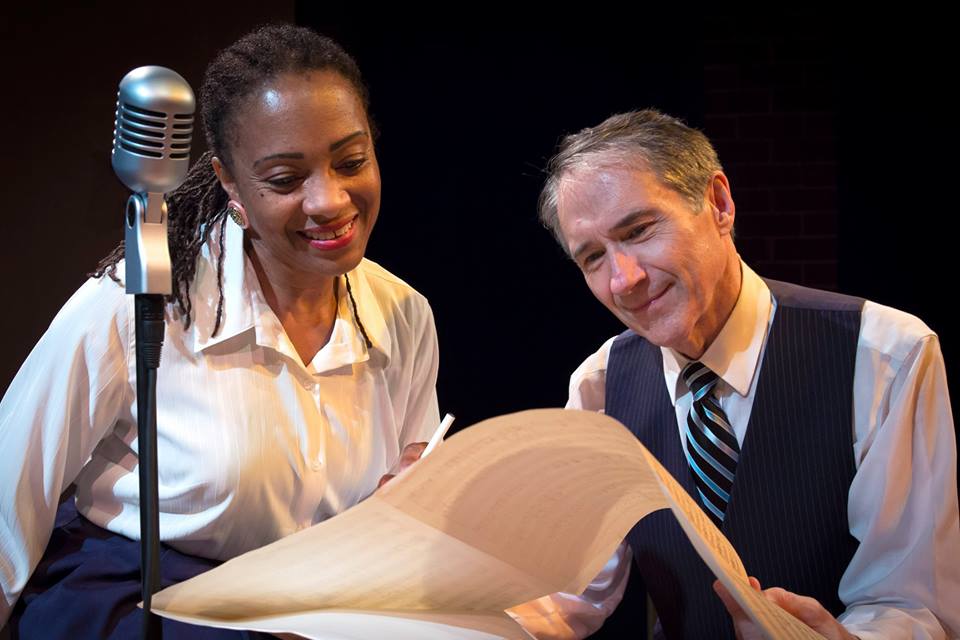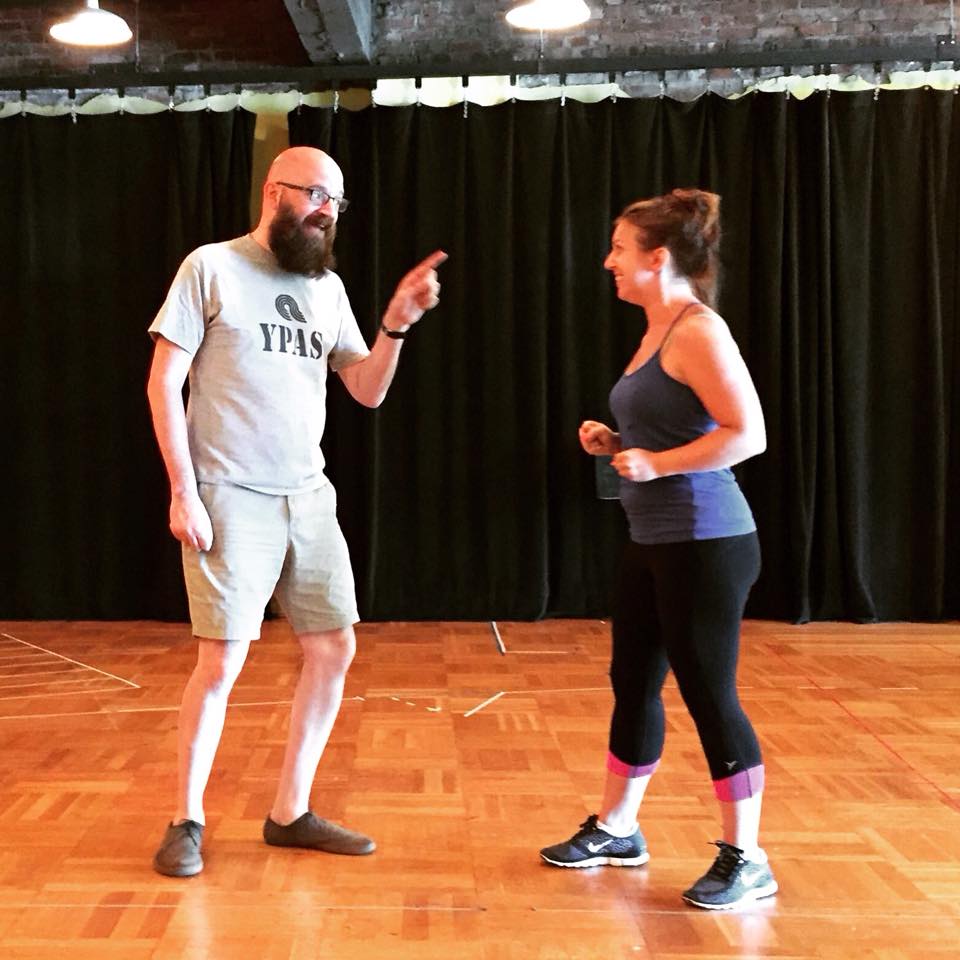Leslie McCurdy & Steve Crews in The Lady Ain’t Singing No Blues.
Photo courtesy of Bunbury Theatre
The Lady Ain’t Singing No Blues
By Leslie McCurdy
Directed by Clyde Tyrone Harper
Review by Katherine Dalton
Entire contents copyright © 2016 Katherine Dalton. All rights reserved.
This evening of Billie Holiday is a revue of her life and music, and its high points are always her songs. She wrote and interpreted so many wonderful ones, stitched together here by brief monologues about people and incidents in her short and troubled life. Consequently, as a performance piece, The Lady Ain’t Singing No Blues succeeds or fails on the ability of the actress to sing.
At Bunbury the author of this revue, Leslie McCurdy, also performs it, and as a singer she is able to recreate some of the nasal quality of Holiday’s thin but memorable voice. McCurdy is also good at recreating some of Holiday’s interesting note choices; like the great jazz singer she was, Holiday was never one to leave a song alone and sing it as written. McCurdy has a harder time managing the tempo changes that mark a number of Holiday’s performances, but then that was a specialty of the singer, and her subtlety and originality is not easy to recreate.
As a play The Lady Ain’t Singing No Blues has several weakness. The conceit of having Holiday tell her story to the midday hangers-on in a cabaret club, where she has snuck in to rehearse songs for a new album, is weak. The monologues between songs hit too patly on many of the major areas of her biography (her hard childhood, her abusive lovers, her drug use, her second-class status as a black singer), and precisely because the revue covers a lot of ground it lacks wholeness as a drama.
But what I missed most was the way Billie Holiday had of putting a song over. It can be heard in her best recordings, and it can be seen and heard in the relatively rare taped footage of her singing. She was always telling a story, often her own story, and she told it from the depth of her being. Holiday did not have a strong or wide-ranging voice, and she typically sang with musical restraint. But she never sang with emotional restraint, and it was this emotion that was missing from most of McCurdy’s performance.
McCurdy showed what she could do with “My Man,” which she sang beautifully and evocatively, making that song the highlight of a night that included other Holiday classics such as “You’ve Changed,” “Lover Man,” “The Man I Love,” “Moanin’ Low” and, of course, “Strange Fruit.” When McCurdy can sing all night with the same heart she found in singing “My Man,” then this revue, warts and all, will be a delight.
Jazz musician Steve Crews did a fine job at the piano, in character as Holiday’s accompanist.
The Lady Ain’t Singing No Blues
June 10, 11, 15, 16, 17 and 18 at 7:30 p.m.
June 12 and 19 at 2:30 p.m.
Bunbury Theatre Company
at The Henry Clay Theatre
604 South Third Street
Louisville, KY 40202
(502) 585-5306
bunburytheatre.org
Katherine Dalton began working in journalism at The Yale Literary Magazine, during its brief period as a national magazine based at Yale. She has also worked at Harper’s Magazine and Chronicles, where she remains a contributing editor. She has written for publications ranging from the Wall Street Journal and the Baltimore Sun to the University Bookman and Harper’s Bazaar. Ms. Dalton is a contributor to Wendell Berry: Life and Work (edited by Jason Peters), Morris Grubb’s volume Conservations with Wendell Berry, and is currently at work on a book about farming. She lives in Kentucky.





